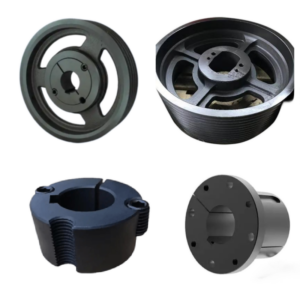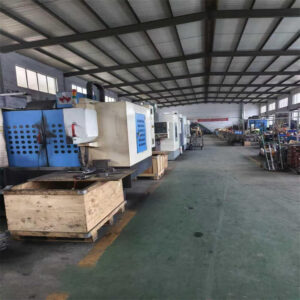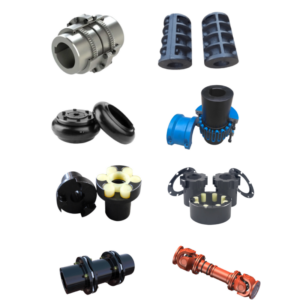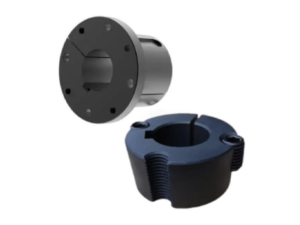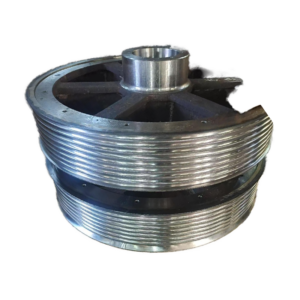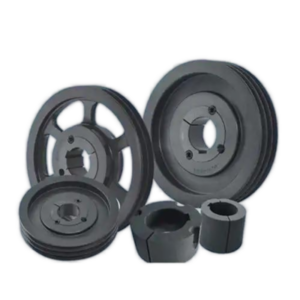Pulleys are critical components in power transmission systems, and their performance largely depends on the design and functionality of their central holes. The most common types of holes found in pulleys include Pilot Bores (with or without keyways), Taper Lock Bores, and Process Holes. Each type serves distinct purposes and offers unique advantages depending on the application. Below is a detailed comparison of their benefits.
1. Pilot Bore (With Keyway)
Advantages:
✔ High Torque Transmission – The keyway ensures positive locking with the shaft, preventing slippage even under heavy loads.
✔ Precise Alignment – The tight tolerance (e.g., H7/k6) guarantees concentricity, reducing vibration and wear.
✔ Standardization – Follows ISO/ANSI keyway dimensions, ensuring compatibility with standard shafts and keys.
Best For:
- Heavy machinery (compressors, crushers).
- High-torque applications requiring rigid shaft connections.
2. Pilot Bore (Keyless – Taper Lock Design)
Advantages:
✔ Easy Installation & Removal – Uses a tapered bushing system for tool-free assembly/disassembly.
✔ No Keyway Wear – Eliminates keyway-related wear, extending pulley life.
✔ Accommodates Shaft Tolerances – Self-centering design compensates for minor shaft imperfections.
Best For:
- Frequent maintenance applications (conveyors, agricultural equipment).
- Situations requiring quick replacement without precision machining.
3. Process Holes (Non-Functional)
Advantages:
✔ Weight Reduction – Lightens the pulley, reducing inertia and energy consumption.
✔ Ventilation/Cooling – Allows airflow to prevent overheating in high-speed applications.
✔ Manufacturing Convenience – Used for lifting, clamping, or balancing during production.
Best For:
- Large-diameter pulleys (e.g., industrial fans).
- Cast or forged pulleys needing auxiliary features for handling.
Comparison Table
| Feature | Pilot Bore (Keyed) | Pilot Bore (Taper Lock) | Process Holes |
|---|---|---|---|
| Torque Capacity | Highest | High | Not applicable |
| Ease of Assembly | Moderate | Very Easy | N/A |
| Precision Required | High (H7/k6) | Moderate | Low |
| Maintenance | Requires key checks | Minimal | None |
| Cost | Lower (no bushing) | Higher (bushing cost) | Negligible impact |
Conclusion
- For high-power, fixed installations, a keyed pilot bore is ideal for reliability.
- For adjustable or service-heavy systems, Taper Lock bores offer flexibility.
- Process holes are secondary but valuable for weight and thermal management.
Selecting the right hole type optimizes performance, reduces downtime, and extends pulley lifespan. For custom requirements, consult pulley manufacturers to match the design to your operational needs.

